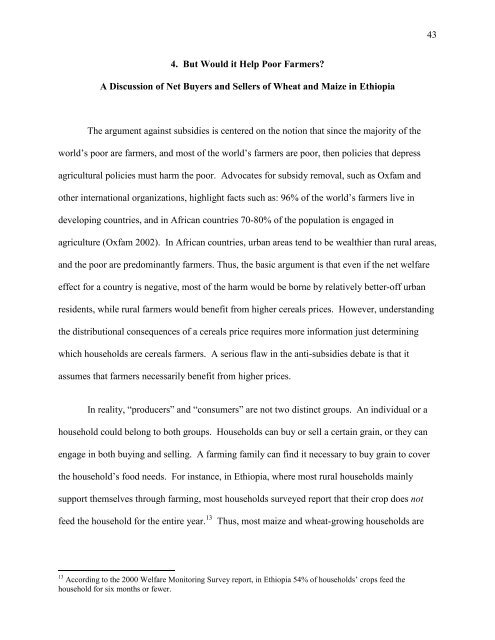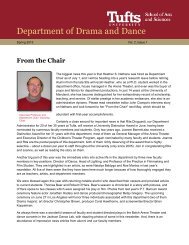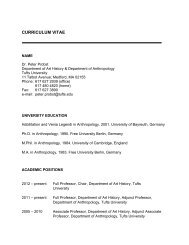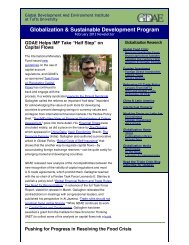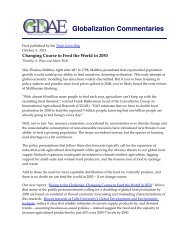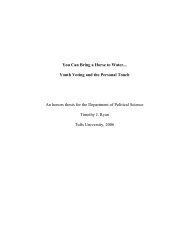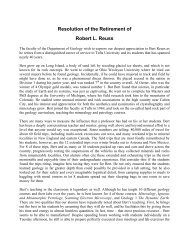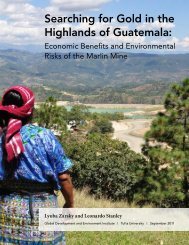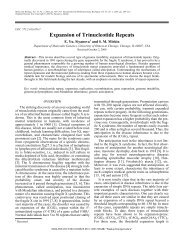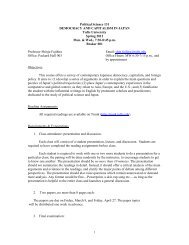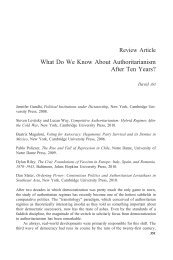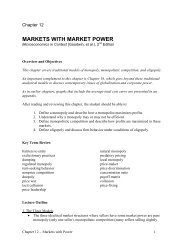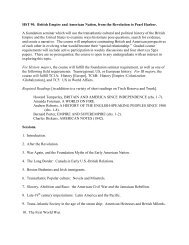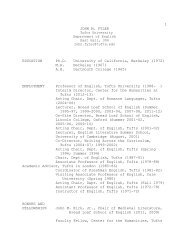The Impact of a New WTO Agricultural Agreement ... - Tufts University
The Impact of a New WTO Agricultural Agreement ... - Tufts University
The Impact of a New WTO Agricultural Agreement ... - Tufts University
You also want an ePaper? Increase the reach of your titles
YUMPU automatically turns print PDFs into web optimized ePapers that Google loves.
43<br />
4. But Would it Help Poor Farmers?<br />
A Discussion <strong>of</strong> Net Buyers and Sellers <strong>of</strong> Wheat and Maize in Ethiopia<br />
<strong>The</strong> argument against subsidies is centered on the notion that since the majority <strong>of</strong> the<br />
world’s poor are farmers, and most <strong>of</strong> the world’s farmers are poor, then policies that depress<br />
agricultural policies must harm the poor. Advocates for subsidy removal, such as Oxfam and<br />
other international organizations, highlight facts such as: 96% <strong>of</strong> the world’s farmers live in<br />
developing countries, and in African countries 70-80% <strong>of</strong> the population is engaged in<br />
agriculture (Oxfam 2002). In African countries, urban areas tend to be wealthier than rural areas,<br />
and the poor are predominantly farmers. Thus, the basic argument is that even if the net welfare<br />
effect for a country is negative, most <strong>of</strong> the harm would be borne by relatively better-<strong>of</strong>f urban<br />
residents, while rural farmers would benefit from higher cereals prices. However, understanding<br />
the distributional consequences <strong>of</strong> a cereals price requires more information just determining<br />
which households are cereals farmers. A serious flaw in the anti-subsidies debate is that it<br />
assumes that farmers necessarily benefit from higher prices.<br />
In reality, “producers” and “consumers” are not two distinct groups. An individual or a<br />
household could belong to both groups. Households can buy or sell a certain grain, or they can<br />
engage in both buying and selling. A farming family can find it necessary to buy grain to cover<br />
the household’s food needs. For instance, in Ethiopia, where most rural households mainly<br />
support themselves through farming, most households surveyed report that their crop does not<br />
feed the household for the entire year. 13<br />
Thus, most maize and wheat-growing households are<br />
13 According to the 2000 Welfare Monitoring Survey report, in Ethiopia 54% <strong>of</strong> households’ crops feed the<br />
household for six months or fewer.


